Search
Remove Ads
Advertisement
Search Results
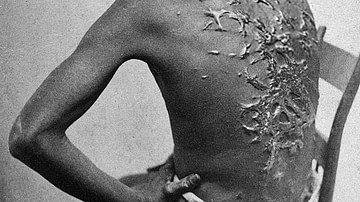
Image
Scourged African American Slave
Escaped slave Gordon, also known as "Whipped Peter," formerly enslaved on a cotton plantation along the Atchafalaya River, showing his scarred back at a medical examination, Baton Rouge, Louisiana. After the whipping, his wounds were salted...
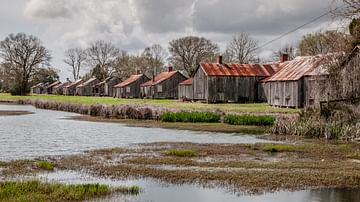
Image
Laurel Valley Plantation
Laurel Valley is the largest 19th- and 20th-century sugar plantation in the United States. Many original structures built in the 19th century survive. Lafourche Parish, Louisiana.
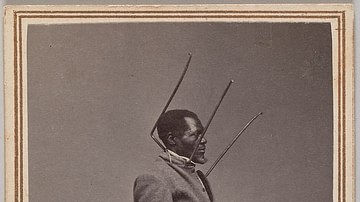
Image
Wilson Chinn, a Branded Slave
Wilson Chinn, a branded slave from New Orleans, Louisiana, also exhibiting instruments of torture used to punish slaves, carte de visite by Charles Paxson, 1863.
Metropolitan Museum of Art, New York.

Image
Old Cane Knife
Old cane knife, the type used for cutting sugar cane by hand, and the most common weapon in the 1811 German Coast Uprising.
1811 Kid Ory Historic House, LaPlace, Louisiana.
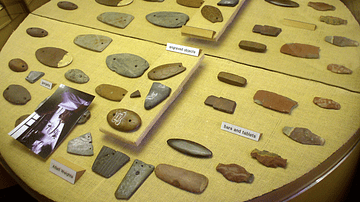
Image
Worked Stone Tools & Weapons, Poverty Point
A selection of worked stone tools and weapons from Poverty Point, Louisiana, USA. Dated to c. 1700-1100 BCE.
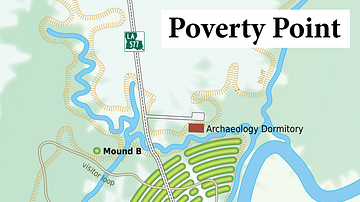
Image
Poverty Point
Map of the Poverty Point archaeological site, Louisiana.
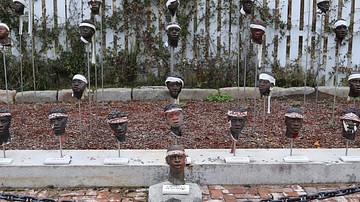
Image
Memorial to the 1811 German Coast Uprising
A memorial to the 1811 German Coast uprising, located at the Whitney Plantation Historic District, St. John the Baptist Parish, Louisiana, USA.
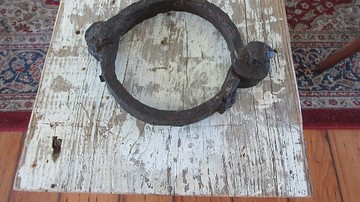
Image
Slave Shackle, 1811, New Orleans, USA
Slave shackle, found on Baronne Street in New Orleans.
1811 Kid Ory Historic House, LaPlace, Louisiana.
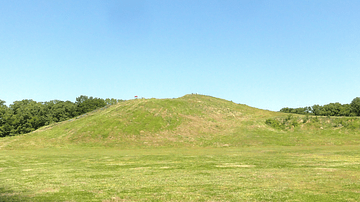
Image
Mound A, Poverty Point
Mound A (aka Bird Mound) at Poverty Point, Louisiana, USA. The mound is 72 feet (22 m) high and 705x660 feet (215x200 m) at the base. Built c. 1700-1100 BCE.

Image
The Lafitte Brothers in Dominique You's Bar
A c. 1821 painting attributed to John Welsey Jarvis of the pirate brothers Pierre and Jean Lafitte (also spelt Laffite, c. 1780-1820/26) who operated in the Gulf of Mexico from 1810 to 1820. (Louisiana State Museum, New Orleans)